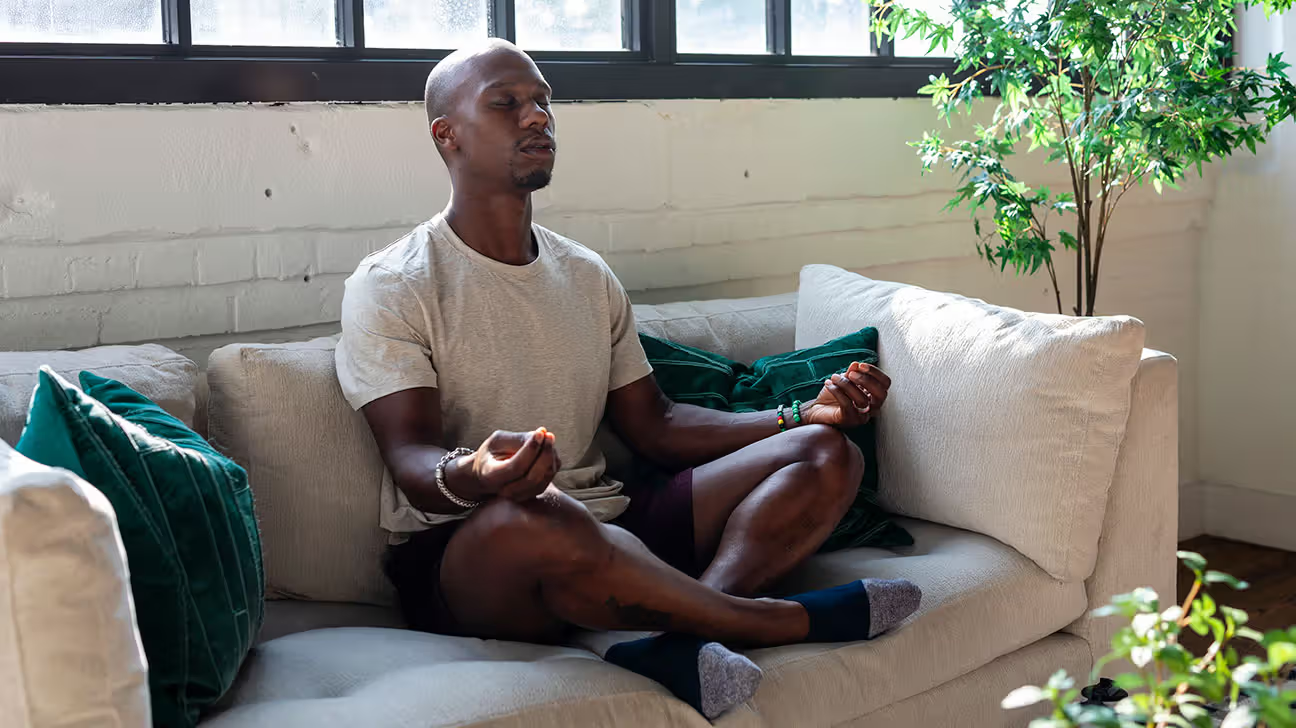Introduction
Anxiety is a widespread disorder that is very common. A lot of people are suffering from anxiety, without being aware that they are suffering from it. When we are faced with tension and stress, anxiety can develop and become an all-encompassing feeling.
The high levels of anxiety that are present for a long period will affect an individual’s capacity to perform at a high level. There is a broad spectrum of disorders that cause anxiety. A few of them are anxiety, panic, phobia disorders, and obsessive-compulsive disorders.
The Science of Anxiety
Anxiety causes an increase in heart rate, heavier breathing, and sweaty hands. These are symptoms of your body’s response to preparing for mental or physical dangers and the stress response. This kind of anxiety is normal and may be anticipated in certain situations and be temporary.
But those with anxiety disorders typically experience prolonged periods of intense emotion that can affect their day-to-day life.
There are a myriad of anxiety-related disorders. A few of them are generalized anxiety disorder, panic disorder, and related disorders involving fear, such as social anxiety. Although each class has its unique symptoms, generalized anxiety disorder is by far the most common. It is often characterized by persistent anxiety that is triggered by everyday things and situations.
11 ways to deal with Anxiety Disorder
1. Question your mood pattern.
Unpleasant feelings can pop up in your mind, which can affect the rigor of the situation. One approach is to question your beliefs by asking whether they’re real and then consider how you can take back your control.
2. Try to be focused.
Take a deep breath in and out four times or more, each for 5 minutes. By controlling your breathing and breathing, you’ll reduce your heart rate, which can assist in relaxing.
3. Take the aromatherapy
It’s a treatment that is done by smelling or smelling the chemical compounds that create smells that are in incense, oil, or candles. Parfums with flavors such as lavender, chamomile, and sandalwood are very soothing. They can assist in relieving your anxiety from a general disorder. Aromatherapy is believed to assist you in activating certain receptors in your brain, which could help reduce anxiety.
4. Try to go for an outing or do yoga
Sometimes, the best way to calm your thoughts is to get away from the issue. Spend some time focusing on your physical body and your mind, and help alleviate your anxiety.
5. Write down your thoughts.
Noting down what’s making you anxious takes the worry out of your mind and helps you relax.
6. Long-term strategies for anxiety disorders
If anxiety becomes a regular aspect of your life, it’s important to discover strategies for treating it to assist you in keeping it in the rearview mirror. It could be a range of things, including the therapy of psychiatrists as well as meditation. Or it could just be a way of eliminating or resolving your anxiety-related issues.
If you’re unsure of what to do, talk about possible options in a meeting with your mental health expert, who might suggest a solution you didn’t think of before.
7. Observe and arrange your life.
You can express your fears you have on your own, or seek the help of a counselor. Sometimes, they are obvious, for example, drinking alcohol, caffeine, or smoking. In other instances, they may be less obvious.
The long-term issues, such as problems with work or money, might take time to determine. It may require some additional help, such as therapy or even a group of friends.
After you’ve identified the trigger, attempt to reduce your weaknesses as much as you can. If you’re unable to restrict it, for instance, the case of stress in your job, which you aren’t able to shift by using other sustainable techniques, can be helpful too.
8. Adopt cognitive-behavioral therapy.
CBT helps people learn different ways of thinking about and responding to stressful situations. A therapist can assist you in discovering ways to alter negative thoughts and behaviours before they happen.
9. Try a daily or regular practice of meditation.
It takes a bit of practice and dedication, but if you practice it often, it will ultimately allow your brain to stop thinking about the thoughts that cause anxiety when they come up. If you find that sitting in a quiet place and doing meditation is a challenge for you, consider doing yoga.
10. Take supplements or alter your diet.
Modifying the way you eat or using supplements is an effective long-term strategy. Research has shown that certain nutrients or supplements can aid in the reduction of anxiety.
This includes:
- lemon balm
- omega-3 fat acids
- ashwagandha
- green tea
- valerian root (jatamansi)
- dark chocolate
It can take up to three months before your body is used to the nutrition these condiments and food items offer. If you’re taking any other medications ensure that you talk about herbal remedies with your doctor.
11. Keep your mind and body well-balanced.
Regular exercise and eating healthy meals, getting enough sleep, and staying in touch with people you care about are excellent ways to prevent general anxiety conditions.
Conclusion
Anxiety is a severe mental illness that can disrupt daily living and is more than merely sporadic stress. Nonetheless, it is manageable with the correct tactics. Regaining control over your mind and body can be achieved via constant action, whether that be through mindfulness, treatment, improved diet, or lifestyle modifications. Keep in mind that asking for assistance is a strength, not a weakness, and that you are not alone. Give your mental health the same priority as your physical health.
Frequently Asked Questions
At what point should I get professional assistance for my anxiety?
A mental health professional should be consulted if your anxiety is ongoing, disrupts your relationships, sleep, or day-to-day activities, or results in panic attacks.
Is there a lasting cure for anxiety disorders?
Anxiety can be properly managed, even though it may not always be “cured” permanently. With the help of counseling, medicine, and lifestyle modifications, many people find lasting relief.
Are herbal supplements safe to take for anxiety?
Taking herbal supplements, such as valerian root or ashwagandha, might be beneficial, but always get your doctor’s approval before beginning, especially if you’re also taking other medications.
How fast do methods for reducing anxiety work?
While long-term tactics like cognitive behavioral therapy, dietary modifications, or meditation may take weeks to produce results, other methods, like deep breathing or aromatherapy, may provide relief right away.

